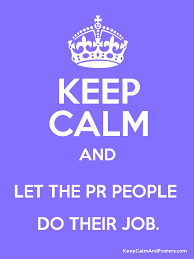In today’s technologically advanced era, it is inevitable to end up in a social media crisis, especially with the many different social media platforms people use to vent/rant about companies and organizations.
The problem with this is:
IF YOU DON’T HAVE A PLAN, HOW DO YOU KNOW WHAT TO DO?
Here’s a short list that can help you prepare for a social media crisis:
- Detect
Make sure you always have an eye and ear on what people have to say about your organization. If you see something that misrepresents your company, or could potentially damage your organization’s image, act accordingly immediately.By “act accordingly immediately” I mean either a) address the comments made with a reply, or b) with a generalized announcement on your social media. If it is only one or two negative comments I would opt for option a.
- Identify
Always make sure you look for who said it. That’s easier said than done. It’s not always easy to find one person who started something, but make sure you try to look for the source. Also, make sure to find out what happened and why it happened. It may be easier to address it that way. - Consider
Use a language your organization uses in all of their messages. You don’t want to sound rude or disrespectful. Always keep a professional demeanor. Address the problem quickly, but don’t rush into posting messages without critically “inspecting” your message before it’s being sent. - Control
If you’re not the CEO, Owner, etc. make sure to get approval from the person that is in charge. It’s critical that your messages convey what your organization stands for. - Respond
Respond on appropriate social media platforms, as well as traditional media if necessary.
As you can see, there are a lot of small things that need to be considered when it comes to responding/reacting to a social media crisis.
The easiest way, which is not always so easy, is to be proactive instead of reactive. By proactive I mean, don’t give your consumers/followers anything to complain about. Make sure that small problems are addressed immediately so they don’t turn in to bigger things. DON’T IGNORE WHAT PEOPLE HAVE TO SAY. In the end, they are the ones paying your bills.
So, if you ask my personal opinion on what to do:
1. Monitor your social media
2. Be proactive instead of reactive
3. Be timely
4. Be respectful
5. Stay professional
Crises happen. We are PR professionals. This is what we signed up for the day we graduated college with our degree in public relations.
Happy social media monitoring,
Jennifer

